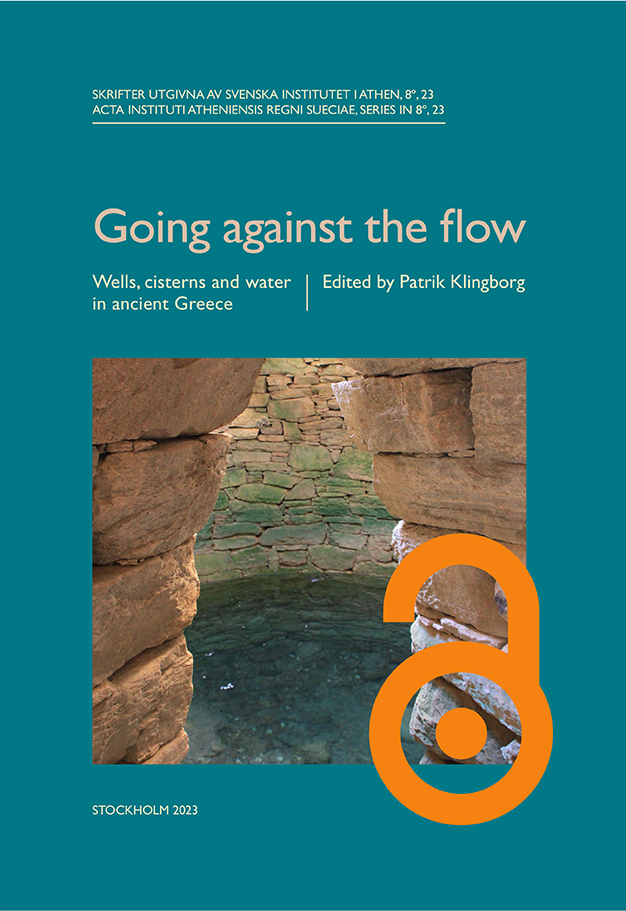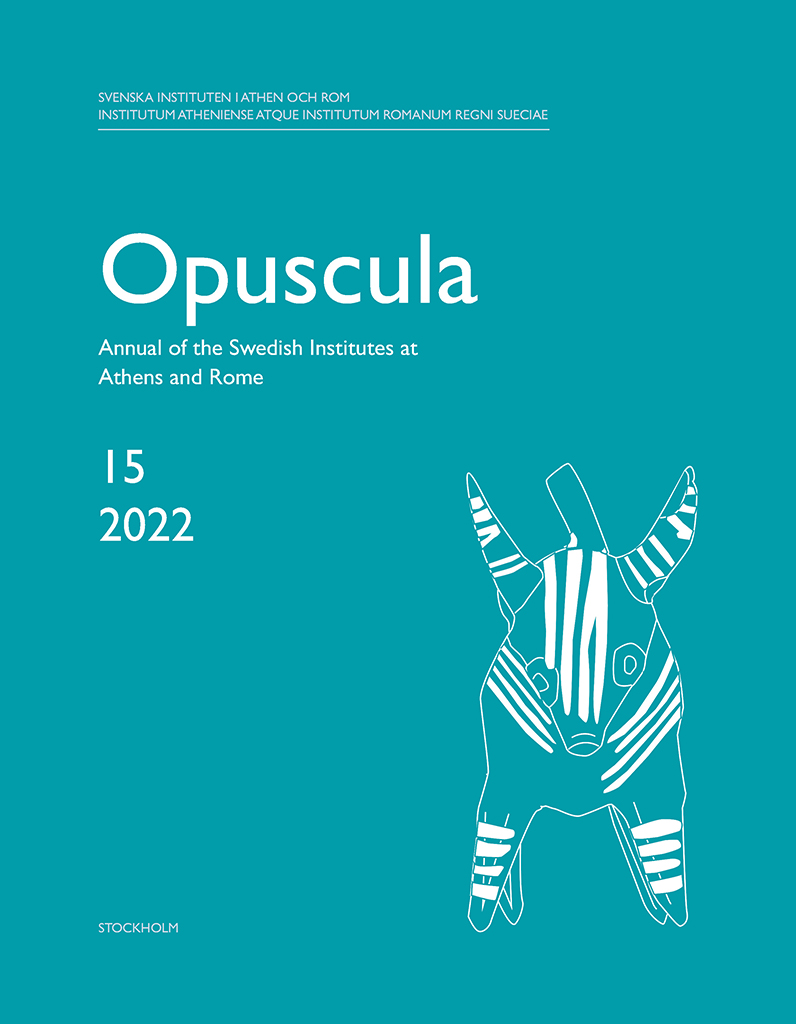Published by the Swedish Institute at Athens. Distributed by Eddy.se AB. All content available with open access, use links below. Going against the flow. Wells, cisterns and water in ancient Greece Edited by Patrik Klingborg https://doi.org/10.30549/actaath-8-23 Abstract Despite the prevalent picture of the water supply in the ancient world as being dominated by fountains and aqueducts, the large number of excavated wells and cisterns show that these were the primary water sources for most individuals. Yet, little research has been done on their construction, function and use. This prompted the organization of the workshop Going against the flow. Wells, cisterns and water in ancient Greece, held at the Swedish Institute at Athens on 28–29 September 2017, and subsequent publication of the contributions in this volume. The ten papers presented here offer new evidence as well as a wide range of new perspectives on the use and function of wells and cisterns in ancient Greece. Considering the ubiquity of these installations in every type of setting during antiquity, from pan-Hellenic sanctuaries and civic centres to domestic workshops and remote farmhouses, it is hoped that the breadth of interest among the authors will allow other scholars to advance their own work further,…
Opuscula is published by the Swedish Institutes at Athens and Rome, with the aid of a grant from the Swedish Research Council. Distributed by Eddy.se AB. View journal at ERIH PLUS. All content available with open access. Human-environment dynamics in the ancient Mediterranean. Keywords of a research field By Erika Weiberg & Martin Finné Abstract Human-environment dynamics in past societies has been a major field of research in the Mediterranean for a long time, but has grown significantly following the increase in the number and quality of palaeoclimate and palaeoenvironmental records in the last two decades. Here we sketch the outline of this field of research based on 1,531 author keywords from 280 peer-reviewed articles published in 78 different scientific journals during 2016–2021. Sourced from the Web of Science, the selected studies cover the time span from the Neolithic to the Roman period across the Mediterranean and provide a large number of entry points for the interested reader regardless of their prior knowledge and specific interests. The results make evident the breadth and interdisciplinary nature of this research and show that it is possible to approach questions of human-environment dynamics in many and diverse ways. Among other things, our overview…


